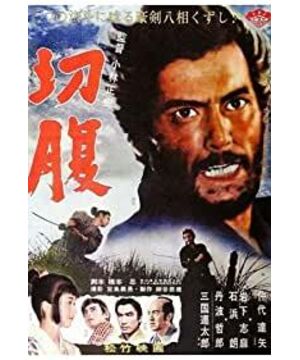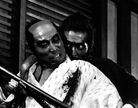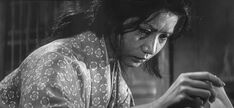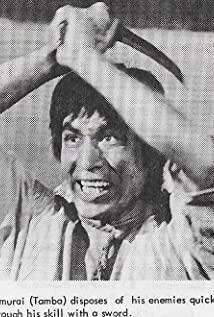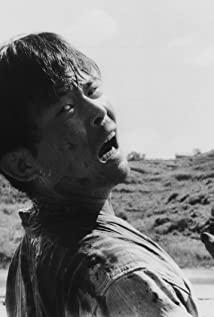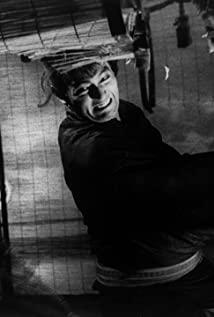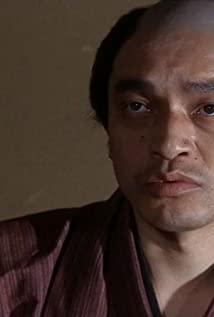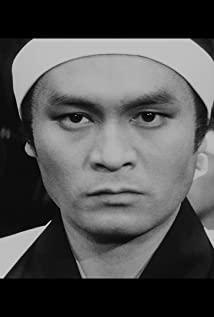(1) As the core of political culture, Bushido is as important to Japan as Confucianism is to China. Research usually uses "Bushido" as a key to the interpretation of Japanese society for centuries. The so-called Bushido refers to the principles governing the life of the samurai, the restraint of morality and ethics, and it is also related to many aspects of the meaning of life and value selection. The mature Bushido spirit we are talking about today absorbs and integrates the influence of Confucianism, Zen Buddhism, Shintoism and other cultures. With the change of time, the shift of political opinions and the emphasis of humanistic style have extended and evolved. The samurai gives people the intuitive impression that they are knives and knives. They are cold weapons used to kill. The knives are used to punish evil and promote good, and are the weight to maintain social justice and fairness. However, the possession of a sword is a symbol of the samurai aristocratic identity and bravery, and the integrity and soul of the samurai. In the beginning, the scale of the formation of the samurai class originated from the overhead collapse of the emperor's centralization. The meaning of the existence of the samurai was to maintain the shogunate regime and act as a weapon. Afterwards, especially during the wartime wars of warlords, samurai became artifacts and pawns in the hands of political strategists. Reading history today, especially from a modern perspective, the performance of feudal centralization in the East and the West is roughly similar. The changes in social customs, the adaptation of times and trends, and the trends of wars in ancient and modern times are almost the same. Some historical objects or events are placed in different periods, different backgrounds, and thinking about their essence, all have their own unique meanings of identification and exploration. Bushido also has many different levels and angles of interpretation, such as positive and negative. (2) The cruelty and narrow-mindedness of Bushido lies in the fact that the samurai neglected the beauty and benevolence of human morality and deviated from the core of humanitarianism in the mediation of service politics and pursuit of self-belief. The most extreme manifestation of this is the modern fascist military state. Ism. In the cultural camp set forth in "Ye Yin", it also coincides with politicians seeking the continuation of identity and power. For the stability of their own interests, they always base themselves on the divinity, dignity and collective consciousness of local Shintoism and weaken the benevolence and justice of Confucianism. Thought, and emphasize the sense of samurai loyalty, courage and absolute obedience. Begin to admire that the samurai should die without hesitation, and fade away fearlessly. This sense of ritual is just like the one bestowed in "Cutting the Abdomen", regarding the absolute dignity and meaning of the samurai identity, this is a cruel expression of Bushido. In "Death Madness Consciousness" In the package, there is often a transcendent orientation that implies emptiness and seclusion. On the one hand, this kind of value instillation stems from the reflection of natural customs. It is not only the epitome of regional factors and social humanities, but is inseparable from the traditional Japanese aesthetics. This kind of tragic and beautiful, wild and romantic sense of authenticity is the core that dominates Japanese national culture. Just like Shinoda Masahiro's work-"Sakura no Mori blooms all over the world", the cherry blossoms falling over the forest and the death of the samurai form an intertextuality. The extremely splendid beauty also contains signs of life decline. At the best time of life, escaping into madness and dying is like the impermanence of life, like entering a dreamland, transcendental mystery that language cannot express, presenting another kind of chaos and Zen awareness. (3) The performance of the Shido camp is the evolution of the narrow sense of Bushido to the broad sense of Bushido, and the transition from martial arts to literary style in peacetime. As a samurai, you should not only have outstanding martial arts, but also have the talents to govern the world and the foresight. The noble samurai became the monarch’s staff, assisting and making suggestions for the monarch, for the reference of the daimyo or the leader of the clan. Of course, there are also people who enjoy tea and enlighten the Tao, one flower and one world, who hide themselves in the city as Xianyun elegant scholars. They may be like literati, or stubborn wanderers wandering through the city, relying on superb kendo and knowledge and cultivation, or they may be chivalrous and righteous, or they may live in temples. The most famous images of this kind of typical examples are the characters in "Seven Samurai" and "Zatoshi". These heroic images, which have been put on the screen many times, embody the benevolence and righteousness of Confucianism. What Shidao conveys is not the slaying and manipulation of politicians' authority, and it does not seem to seek death madness and truth sadly, but to take the world as their own responsibility. The core of their pursuit of life value is closer to the rule of virtue advocated by Confucianism. Just as Confucianism advocated the idea of being poor and being good at one's own body, and being able to benefit the world at the same time, samurai began to attach importance to the cultivation of both civil and military. In addition, it can be seen that between China and Japan, the many origins of Han and Japanese styles are closely related. Because Japan is a more rigorous nation that is better at learning, learning from each other's strengths, and rigorous, the absorption and development of Confucianism and Buddhism, including independent integration and innovation, and the establishment of a nation and soul of native culture, are also the foundation of modern Japan. (Four) In the middle and late nineteenth century, the Shogunate period was heading towards sunset, which of course also marked the end of the samurai class. The fundamental conflict is that the development of the commodity economy destroys the interest chain structure of the warrior class, the foundation of economic rights and interests determines the superstructure, and the warrior gradually degenerates into the position of common people. Another intuitive factor is the "invasion" of the Western world, which has had a shock effect on the traditionally closed regional customs and social structure on the island of Japan, and at the same time brought Western capitalism. The sweep of culture has accelerated the process of Japan’s primitive land from traditional society to modern civilization. It can be said that while succeeding the feudal shogunate, the sunset was accompanied by the development of Japanese capitalism. After the Tokyo Olympics in 1964, Japan’s economy has become more prosperous. Today, Japan is advocating that it has escaped from Asia and entered Europe and developed into a highly civilized and modern capitalist society. So has Japan been completely cut off from "Bushido"? I'm afraid it's not that simple. Indeed, modern Japan has taken on a brand new look, and the core culture of a nation, or the cultural attributes of regional intrusion, are deeply rooted like blood, and still imperceptibly influence people's thinking in modern life. From the religious belief in Shinto, or the plot of the Japanese prime minister's visit to the Yasukuni Shrine, or from the traditional patriarchal society to compare the survival of modern Japanese women? Another example is Confucianism, Shintoism, and Buddhist Zen that dominate Bushido under loyalty, courage, and benevolence. From a certain perspective, it is difficult for Japan to realize the so-called Western-style democracy and freedom, and it is even more difficult to abandon the national consciousness of clan and collectivism. It is impossible to separate Bushido from modern Japan. , It has brought shock effects to the traditionally closed regional customs and social structure on the island of Japan, and at the same time brought Western capitalism. The sweep of culture has accelerated the process of Japan’s primitive land from traditional society to modern civilization. It can be said that while succeeding the feudal shogunate, the sunset was accompanied by the development of Japanese capitalism. After the Tokyo Olympics in 1964, Japan’s economy has become more prosperous. Today, Japan is advocating that it has escaped from Asia and entered Europe and developed into a highly civilized and modern capitalist society. So has Japan been completely cut off from "Bushido"? I'm afraid it's not that simple. Indeed, modern Japan has taken on a new look, and the core culture of a nation, or the cultural attributes of regional intrusion, are deeply rooted like blood, and they are still imperceptibly influencing people's thinking in modern life. From the religious belief in Shinto, or the plot of the Japanese prime minister's visit to the Yasukuni Shrine, or from the traditional patriarchal society to compare the survival of modern Japanese women? Another example is Confucianism, Shintoism, and Buddhist Zen that dominate Bushido under loyalty, courage, and benevolence. From a certain perspective, it is difficult for Japan to realize the so-called Western-style democracy and freedom, and it is even more difficult to abandon the national consciousness of clan and collectivism. It is impossible to separate Bushido from modern Japan. , It has brought shock effects to the traditionally closed regional customs and social structure on the island of Japan, and at the same time brought Western capitalism. The sweep of culture has accelerated the process of Japan’s primitive land from traditional society to modern civilization. It can be said that while succeeding the feudal shogunate, the sunset was accompanied by the development of Japanese capitalism. After the Tokyo Olympics in 1964, Japan’s economy has become more prosperous. Today, Japan is advocating that it has escaped from Asia and entered Europe and developed into a highly civilized and modern capitalist society. So has Japan been completely cut off from "Bushido"? I'm afraid it's not that simple. Indeed, modern Japan has taken on a new look, and the core culture of a nation, or the cultural attributes of regional intrusion, are deeply rooted like blood, and they are still imperceptibly influencing people's thinking in modern life. From the religious belief in Shinto, or the plot of the Japanese prime minister's visit to the Yasukuni Shrine, or from the traditional patriarchal society to compare the survival of modern Japanese women? Another example is Confucianism, Shintoism, and Buddhist Zen that dominate Bushido under loyalty, courage, and benevolence. From a certain perspective, it is difficult for Japan to realize the so-called Western-style democracy and freedom, and it is even more difficult to abandon the national consciousness of clan and collectivism. It is impossible to separate Bushido from modern Japan.
View more about Hara-Kiri reviews


